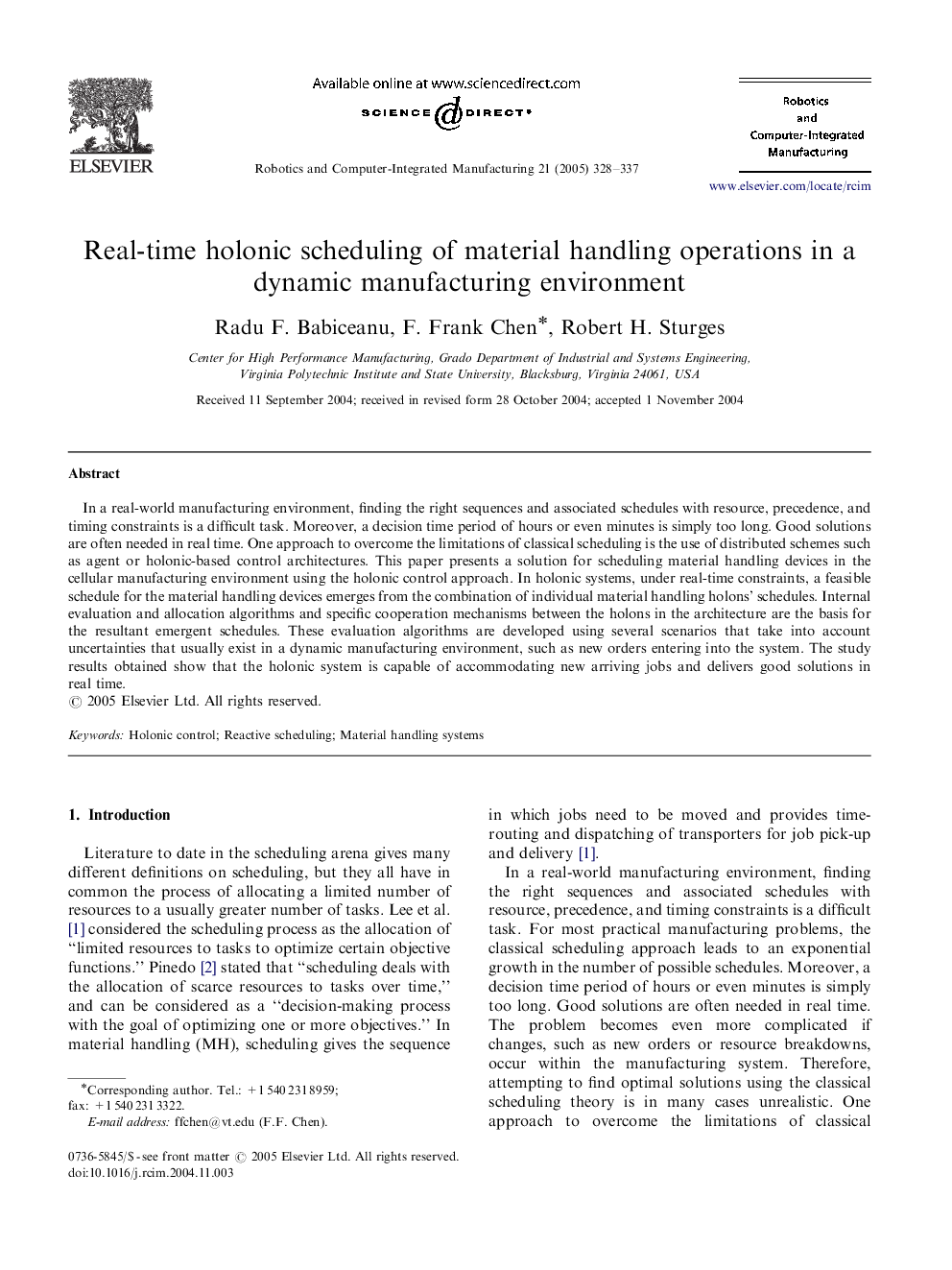| Article ID | Journal | Published Year | Pages | File Type |
|---|---|---|---|---|
| 9654798 | Robotics and Computer-Integrated Manufacturing | 2005 | 10 Pages |
Abstract
In a real-world manufacturing environment, finding the right sequences and associated schedules with resource, precedence, and timing constraints is a difficult task. Moreover, a decision time period of hours or even minutes is simply too long. Good solutions are often needed in real time. One approach to overcome the limitations of classical scheduling is the use of distributed schemes such as agent or holonic-based control architectures. This paper presents a solution for scheduling material handling devices in the cellular manufacturing environment using the holonic control approach. In holonic systems, under real-time constraints, a feasible schedule for the material handling devices emerges from the combination of individual material handling holons' schedules. Internal evaluation and allocation algorithms and specific cooperation mechanisms between the holons in the architecture are the basis for the resultant emergent schedules. These evaluation algorithms are developed using several scenarios that take into account uncertainties that usually exist in a dynamic manufacturing environment, such as new orders entering into the system. The study results obtained show that the holonic system is capable of accommodating new arriving jobs and delivers good solutions in real time.
Related Topics
Physical Sciences and Engineering
Computer Science
Artificial Intelligence
Authors
Radu F. Babiceanu, F. Frank Chen, Robert H. Sturges,
